News/Events

How the public can influence health research – free information session
Patients and the public play a vital role in how research is carried out at the Cambridge Biomedical Campus. Their voice can shape new research priorities and improve how we conduct our studies. Read more
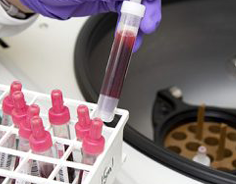
‘Biological fingerprint’ in blood could help identify COVID patients with no symptoms
Cambridge researchers are able to identify people who have had COVID-19 even if they displayed no symptoms. Read more

Key mutations in Alpha variant enable SARS-CoV-2 to overcome evolutionary weak points
One of the key mutations seen in the ‘Alpha variant’ of SARS-CoV-2 – the deletion of two amino acids, H69/V70 – enables the virus to overcome chinks in its armour as it evolves, Read more
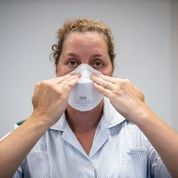
Upgrading PPE for staff working on COVID-19 wards cut hospital-acquired infections dramatically
When Addenbrooke’s Hospital in Cambridge upgraded its face masks for staff working on COVID-19 wards to filtering face piece 3 (FFP3) respirators, it saw a dramatic fall – up to 100% – in Read more

Cambridge GPs launch ‘pill on a string’ cancer check
A Cambridge device to spot early signs of cancer is being trialled for the first time to GP patients in the UK.Read more

Cambridge researchers win government funding for their artificial intelligence (AI) technologies
Technologies developed by Cambridge researchers that use artificial intelligence to speed up diagnosis and improve patient care have been successful in the latest round of the £140million Artificial Intelligence in Health and Care Read more

Updated risk model helps doctors predict and prevent cardiovascular disease
Research developing the European Society of Cardiology cardiovascular disease risk prediction calculator to aid efforts to reduce the burden of CVD in Europe.Read more
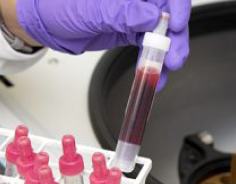
Genomics front and centre in blood matching
The international Blood transfusion Genomics Consortium launches to expand cutting-edge genomics for more accurate blood typing.Read more
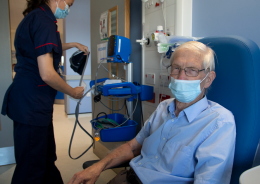
Cambridge begins world-first COVID-19 vaccine booster study
Researchers in Cambridge have welcomed their first participants in a new UK study to understand the effects of a ‘booster’ dose of a COVID-19 vaccine.Read more

A single gene could be the reason why some of us carry an extra 30 pounds of fat
New research has found that one in every 340 people might carry a mutation in a single gene that makes them more likely to carry extra weight. Read more
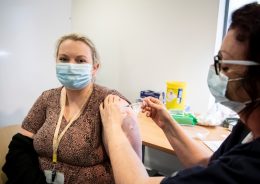
World-first covid-19 vaccine booster study launches in Eastern region
Volunteers from the East of England will soon be able to receive a third ‘booster’ COVID-19 vaccine through a new Government-funded clinical trial.Read more

Join us in supporting International Clinical Trials Day
Every year 20 May is celebrated by healthcare workers, researchers, patients and communities around the world to mark International Clinical Trials Day.
On this day in 1747, ship surgeon James Lind started what Read more
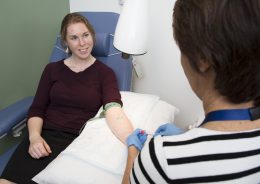
IBD BioResource – Celebrating 5 years of its contribution to Crohn’s and Colitis research
The NIHR IBD BioResource marks their fifth year of helping to transform the research in Crohn’s disease and ulcerative colitis. Read more

Cambridge clinical researchers elected Fellows of the Royal Society
Two NIHR Cambridge BRC clinical researchers, Prof. Sadaf Farooqi and Prof. David Rowitch, have been elected as Royal Society Fellows.Read more

Save your energy! New tool shows algorithms’ environmental impact
Data science and artificial intelligence are transforming UK healthcare – but at an environmental cost.
The data centres housing the supercomputers that run the algorithms account for 100 megatonnes of CO2 emissions every Read more
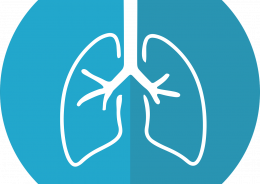
Ability of multi-drug resistant infection to evolve within cystic fibrosis patients highlights need for rapid treatment
Researchers have tracked how a multi-drug resistant organism is able to evolve and spread widely among cystic fibrosis patients Read more

Differing immune responses discovered in asymptomatic cases and those with severe COVID-19
A UK-wide study part-funded by the NIHR has identified differences in people’s immune responses to COVID-19, depending on whether they have no symptoms or more serious reactions to the virus.Read more

Stress does not lead to loss of self-control in eating disorders, study finds
Stress does not trigger binge eating in people with eating disorders, new research suggests.Read more

Placenta is dumping ground for genetic defects
Researchers have confirmed that the normal structure of the placenta is different to any other human organ and resembles that of a tumour, harbouring many of the same genetic mutations found in childhood cancers.Read more
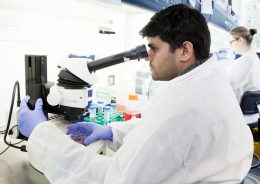
Diphtheria risks becoming ‘major global threat’ again as it evolves resistance to antimicrobials
Diphtheria is evolving to become resistant to a number of classes of antibiotics and in future could lead to vaccine escape, warn an international team of researchers.Read more


